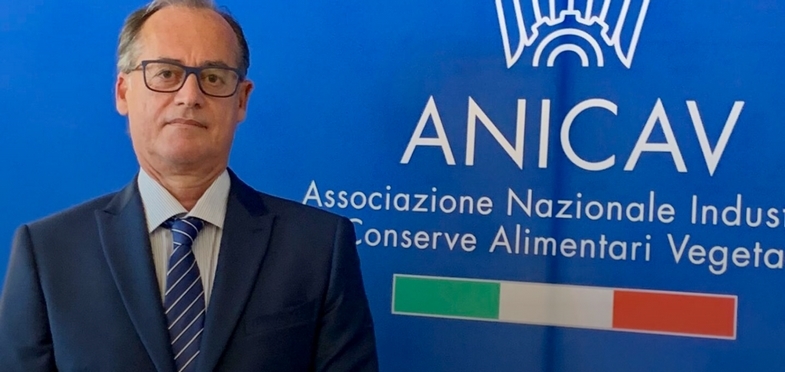Respect for your privacy is our priority
The cookie is a small information file stored in your browser each time you visit our web page.Cookies are useful because they record the history of your activity on our web page. Thus, when you return to the page, it identifies you and configures its content based on your browsing habits, your identity and your preferences.
You may accept cookies or refuse, block or delete cookies, at your convenience. To do this, you can choose from one of the options available on this window or even and if necessary, by configuring your browser.
If you refuse cookies, we can not guarantee the proper functioning of the various features of our web page.
For more information, please read the COOKIES INFORMATION section on our web page.


 "The last season was clearly a long and intense one," said Marco Serafini, President of ANICAV. "With more than 6 million tonnes of tomatoes processed, Italy has once again become the second most important processing country in the world, ahead of China, and is now the world's leading producer and exporter of processed products intended directly for end-consumers. Despite the positive production results, companies have had to face a series of critical issues linked to increasing production costs: from primary to secondary packaging, from freight rates to energy charges. Many challenges await us in the near future, and we will have to use all our best entrepreneurial skills to face them successfully and turn obstacles into opportunities. In this process, the contribution of our young people who represent the future of the sector will be fundamental. With this in mind, in order to better understand the scenario that awaits us in the coming years, we have commissioned
"The last season was clearly a long and intense one," said Marco Serafini, President of ANICAV. "With more than 6 million tonnes of tomatoes processed, Italy has once again become the second most important processing country in the world, ahead of China, and is now the world's leading producer and exporter of processed products intended directly for end-consumers. Despite the positive production results, companies have had to face a series of critical issues linked to increasing production costs: from primary to secondary packaging, from freight rates to energy charges. Many challenges await us in the near future, and we will have to use all our best entrepreneurial skills to face them successfully and turn obstacles into opportunities. In this process, the contribution of our young people who represent the future of the sector will be fundamental. With this in mind, in order to better understand the scenario that awaits us in the coming years, we have commissioned 
 ANICAV, the National Industrial Association of Vegetable Processors, founded in Naples on February 5, 1945, is the largest association representing tomato processing companies in the world in terms of the number of member companies and the quantity of products processed. It includes 80 of the 115 companies operating in Italy, which process about 70% of all processed tomatoes in the country and almost all the whole peeled tomatoes produced in the world, with a turnover of EUR 2.8 billion in 2020 (more than 70% of the total turnover of the Italian tomato processing sector). About 60% of the production is exported, both to Europe (Germany, France, United Kingdom) and to other countries (USA, Japan, Australia), making the tomato an ambassador of "Made in Italy" excellence around the world.
ANICAV, the National Industrial Association of Vegetable Processors, founded in Naples on February 5, 1945, is the largest association representing tomato processing companies in the world in terms of the number of member companies and the quantity of products processed. It includes 80 of the 115 companies operating in Italy, which process about 70% of all processed tomatoes in the country and almost all the whole peeled tomatoes produced in the world, with a turnover of EUR 2.8 billion in 2020 (more than 70% of the total turnover of the Italian tomato processing sector). About 60% of the production is exported, both to Europe (Germany, France, United Kingdom) and to other countries (USA, Japan, Australia), making the tomato an ambassador of "Made in Italy" excellence around the world.



























